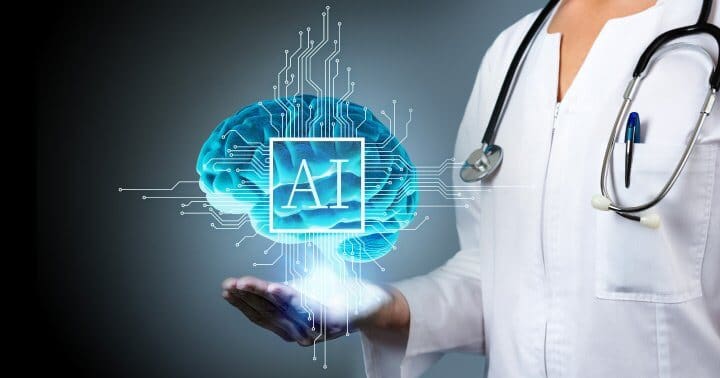Technology
HEALTH
Artificial Intelligence & Your Health

Artificial intelligence (AI) is fundamentally reshaping healthcare in 2025, influencing everything from clinical diagnostics and patient care to operational efficiency and system-wide innovation. The integration of AI technologies is moving the industry toward more personalized, efficient, and accessible care-while also presenting new challenges and opportunities for healthcare professionals, administrators, and patients alike.
AI in Clinical Care: Diagnostics, Personalization, and Patient Outcomes
One of the most visible impacts of AI in healthcare is in diagnostics and patient care. AI-powered tools can now analyze medical images and patient data with a level of precision that often surpasses human experts, leading to earlier and more accurate detection of diseases such as cancer, heart disease, and neurological disorders. These systems use machine learning algorithms trained on vast datasets to identify subtle patterns and anomalies that might be missed by even the most experienced clinicians.
AI is also driving a paradigm shift toward hyper-personalized care. By analyzing genetic, lifestyle, and real-time health data from wearable devices, AI can help develop individualized treatment plans tailored to each patient’s unique needs. For example, AI might detect that a patient’s chronic kidney disease progresses more rapidly with a high-sodium diet and recommend dietary adjustments in real time, thereby improving outcomes and quality of life. This level of personalization marks a significant departure from the traditional “one-size-fits-all” approach to medicine.
Moreover, AI is being used to streamline patient triage, predict which patients need urgent care, and even assist in robotic surgeries, enhancing both the speed and safety of medical interventions. These advancements are not only improving patient outcomes but also helping to address workforce shortages and resource constraints, particularly in regions facing a shortfall of healthcare professional.
Operational Transformation: Efficiency, Automation, and Financial Health
Behind the scenes, AI is revolutionizing healthcare administration and operations. Intelligent automation is taking over routine and time-consuming tasks such as data entry, billing, coding, and claims processing, which traditionally consumed a significant portion of clinicians’ and administrators’ time. By automating these processes, AI is reducing administrative burdens, minimizing errors, and freeing up healthcare professionals to focus more on direct patient care.
AI-driven process intelligence tools are enabling healthcare organizations to discover, monitor, and optimize workflows in real time. These systems can simulate the impact of changes-such as increasing staff in billing departments or adopting new technologies-before implementation, reducing the risk of costly failures and improving decision-making. For example, AI-powered referral management systems are now able to extract and prioritize urgent cases from handwritten and typed notes, cutting overhead costs by up to 50% and boosting revenue by 20%.
Financially, AI is enhancing revenue cycle management by automating complex billing and coding tasks, detecting fraud, and providing accurate financial forecasts. This not only protects revenue but also creates more transparent and patient-friendly financial experiences, which are increasingly important in a competitive healthcare landscape.
Enhancing the Patient Experience and Access to Care
AI is also transforming how patients interact with healthcare systems. AI-powered chatbots and virtual assistants are providing 24/7 support for appointment scheduling, medication reminders, and answering common health questions, making healthcare more convenient and accessible. These tools help patients navigate complex systems, reducing wait times and improving satisfaction.
Wearable devices and remote monitoring technologies, powered by AI, are enabling continuous tracking of chronic conditions and early intervention when issues arise. This not only empowers patients to take a more active role in their health but also allows providers to deliver proactive, rather than reactive, care.
Challenges: Trust, Ethics, and Human Oversight
Despite these advances, the widespread adoption of AI in healthcare brings significant challenges. Building and maintaining trust is paramount; patients and providers must be confident that AI systems are safe, effective, and transparent in their decision-making. Regulatory bodies like the FDA in the U.S. and the European Union are updating frameworks to ensure patient safety and ethical use of AI tools.
Ethical considerations-such as data privacy, algorithmic bias, and the need for human oversight-remain at the forefront. Experts emphasize that AI should serve as a collaborative tool, augmenting rather than replacing human judgment. Explainable AI (XAI) is gaining traction, providing transparency into how decisions are made and fostering trust between providers and patients.
The Road Ahead: AI as a Strategic Imperative
Looking forward, healthcare leaders expect AI to become a strategic imperative, not just a cost-cutting tool. The focus will be on scaling quality improvements, closing workflow gaps, and addressing clinician burnout through automation and smarter resource allocation. More than 80% of health system executives anticipate that generative AI will have a significant or moderate impact on their organizations in the coming years.
The ultimate promise of AI in healthcare is a system that is more responsive, efficient, and patient-centered. By combining advanced analytics, automation, and human expertise, AI is poised to help healthcare organizations deliver better outcomes, reduce costs, and enhance the overall patient experience.
In summary: AI is transforming healthcare from the inside out-redefining how care is delivered, how systems operate, and how patients experience health services. The journey is ongoing, but the direction is clear: AI, when implemented thoughtfully and ethically, is a powerful force for positive change in global health
Let us worry about your future so you can enjoy your present.
PROCESS
You-
Text, Email,Call
Us-
Analyze Needs
&
Recommend
We-
Together Help You,
Invest in the Future




